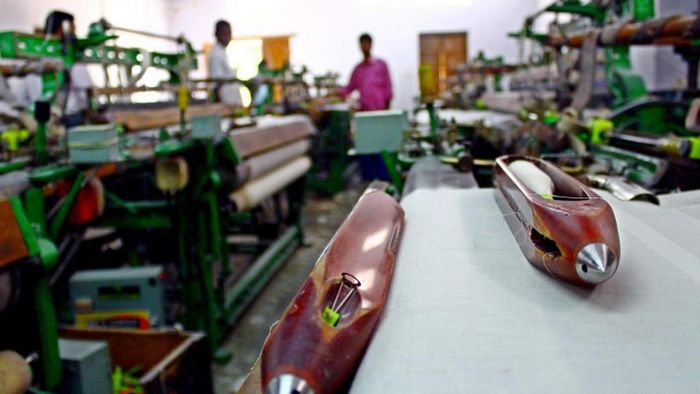How Assam government's ban on power loom-made Mekhela Chador dismantled the Surat textile market
Panic has set in among the power looms weavers in Surat following the ban on the sale of power loom-manufactured Mekhela Sador and Gamusa by the Assam government.

- Mar 08, 2023,
- Updated Mar 08, 2023, 2:21 PM IST
Surat which has been a major supplier of power loom products to Assam for quite some time, making for over 60 per cent of the North Eastern state’s consumption has a reason to worry post Assam government's diktat.
Panic has set in among the power looms weavers in Surat following the ban on the sale of power loom-manufactured Mekhela Sador and Gamusa by the Assam government.
What did Himanta Biswa Sarma say?
Assam CM Himanta Biswa Sarma said, "From March 1 to March 14 and afterwards also the sale of power loom gamosas, mekhela sadors, and power loom aronais has been banned."
Also Read: Assam government to launch drive against sale of power loom gamosa; ban imposed across state
"I am asking all the DCs and SPs to conduct a drive against the sale of such power loom items similar to our child marriage drive...I have asked the DCs to speak with the textile merchant association to stop bringing in such items before getting seized," he added.
Meanwhile, the Assam government through its handloom and textile department has initiated steps to procure handloom gamosas worth over Rs 100 crore in the next financial year to boost the traditional industry in the state.
Speaking to India Today NE, Director and spokesperson of the Federation of Surat Textile Traders Association (FOSTTA) Rangnath Sarda said, "The traders association from Assam came to us a couple of days back and raised worries on the ban on power loom products till April 14, 2023, and also apprised us on the diktat on the government that only locally made products will be sold."
Further, the FOSTTA spokesperson also asserted that yearly the Surat textile industry makes a turnover of over 700 crore in which items such as Mekhla Chador and Gamusa are included.
"Now whatever products are been sent to Assam are now been returned back to Surat as these items could not be stored in godowns and offices in fear of administration raid," he added.
The worry doesn't end here as the factories in Surat are now piled with power loom products made as per the orders are stuck in the factories and also the machinery which were progarmmed to bring the final output are being halted.
Due to the Holi festival, now the FOSTTA has decided to send a memorandum to the textile ministry and apprise them of the fact that under GST law it is not appropriate for any state government to impose such bans.
"Today Assam government has done, tomorrow it may be UP or other states wherever handlooms are there then Surat textile industry will continue to make losses," Sarda added.
The FOSTTA also claimed that locally made products are expensive and only people who are in the upper middle-class section can afford such products, hence the same item which is sold locally at a price of Rs 15-20 thousand are been sold at Rs 3-5 thousand by the Surat traders which is a carbon copy for all the class of people.
"We don't know when the ban will continue, but normally in this season we do a business of Rs 100-150 crore which has this time gone to zero after the ban," he added.
The FOSTTA also claimed that apart from the loss the same amount of products are ready to be delivered, but stuck due to the state ban.
The FOSTTA also added that if the ban continues in Assam, then traders will find alternative routes thru smuggling to deliver the items to the state and alleged that the state government's notification should have been released much earlier in order to avoid the losses incurred.
Speaking to India Today NE from Surat, the general secretary of the Federation of Surat Textile Traders Association (FOSTA), Champalal Bothra, said the sudden ban “on one hand, will impact around 700 to 800 traders and 300 to 400 weavers along with the labourers associated with the looms producing Mekhala Sador in Surat that has a turnover of around `3,000 crore annually.”
In Surat, traders use polyester, cotton, nylon and kota yarns to make mekhela sadors on power looms, while traditional weavers from Assam use silk and khadi, said Budiya.